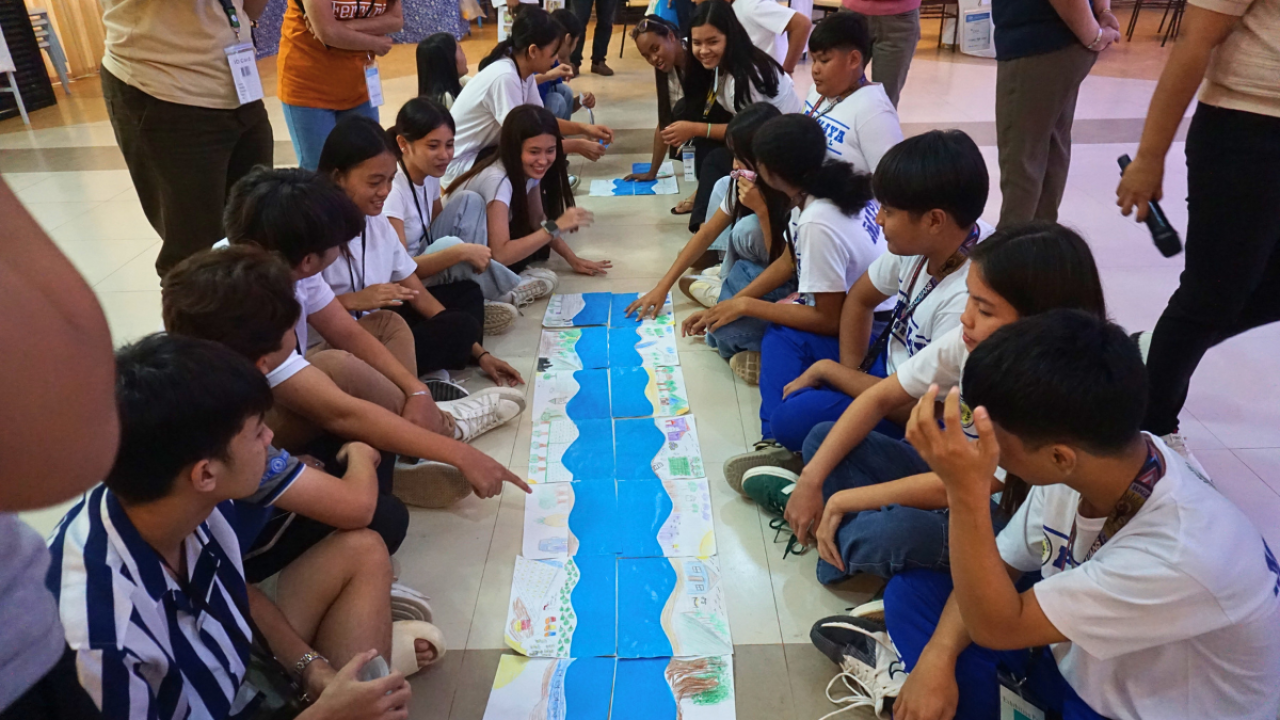Looking Back: A Teen Camper’s Journey Toward Sustainability
In October 2023, the Society for the Conservation of Philippine Wetlands, Inc. (SCPW) hosted the Sustainability Leadership Journey, a milestone event under the Living Lakes Biodiversity and Climate Project (LLBCP). The event included a field visit to Pangil River Eco Park along Laguna de Bay and brought together wetland advocates – past and present – to share their stories and inspire a new generation of conservation leaders.
One such advocate was Mark Oliveros, a Senior IT Audit Associate at the largest accounting firm in the Philippines. With visible pride, Mark recounted his beginnings as a 14-year-old participant in the SCPW Youth Ecological Camp (YEC) back in 2014. Holding up the SCPW YEC Training Manual distributed during the event, he pointed to a photo and exclaimed, “That was me!” While his current profession may seem far removed from wetland conservation, Mark emphasized how the values and lessons he learned during YEC continue to influence his professional and personal life. His firm now supports environmental initiatives, keeping him rooted in the advocacy he started with SCPW.
Mark’s story is one of many, illustrating the long-term impact of the Youth Ecological Camps in cultivating sustainability champions among Filipino youth.
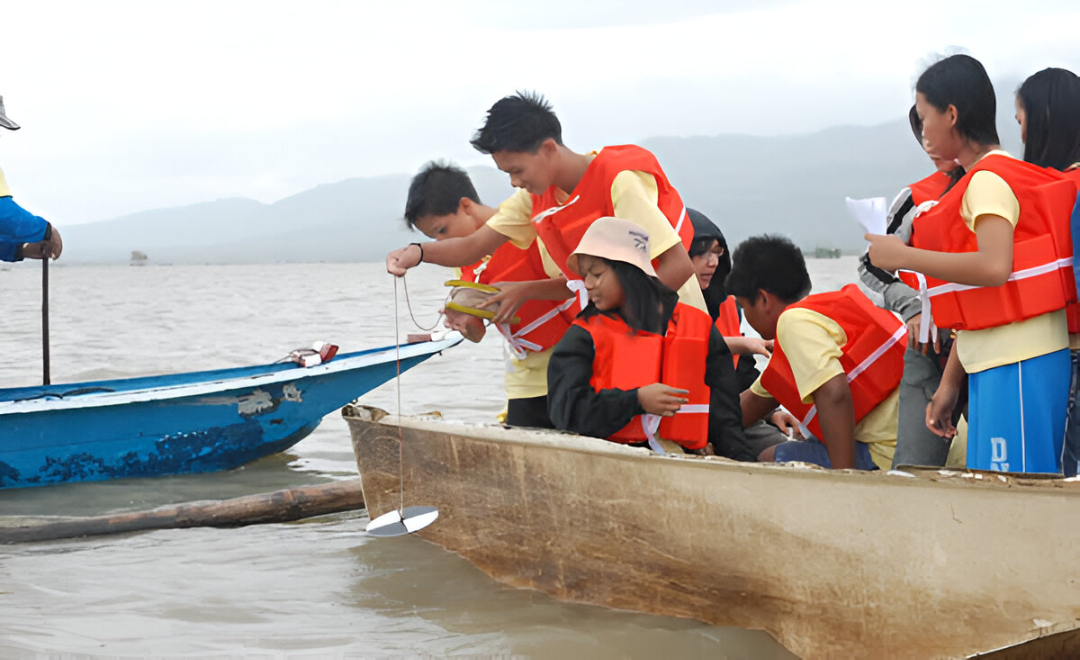
The YEC: A Capacity-Building Pillar of LLBCP
The Youth Ecological Camps (YEC) represent a long-standing effort by SCPW to foster environmental awareness and action among young Filipinos. Originally the flagship project of the CLEAR partnership – composed of the Laguna Lake Development Authority, Unilever Philippines, and SCPW under the Living Lakes Network – the YEC has continued annually for over 21 years. With the support of the LLBCP, this initiative has scaled its impact beyond Laguna de Bay to other key wetlands in the Philippines.
The LLBCP, a five-year international cooperation project led by Global Nature Fund and funded by Germany’s International Climate Initiative (IKI), aims to ensure the long-term conservation and restoration of wetlands and their biodiversity across 10 countries. In the Philippines, the project focuses on empowering local stakeholders through capacity building and the implementation of Frontrunner Initiatives like the YEC.
In December 2024, SCPW held a back-to-back Training of Trainers and Youth Ecological Camp in Candaba, Pampanga – a LLBCP priority site – ensuring sustainability by training a new generation of facilitators to carry the torch forward.
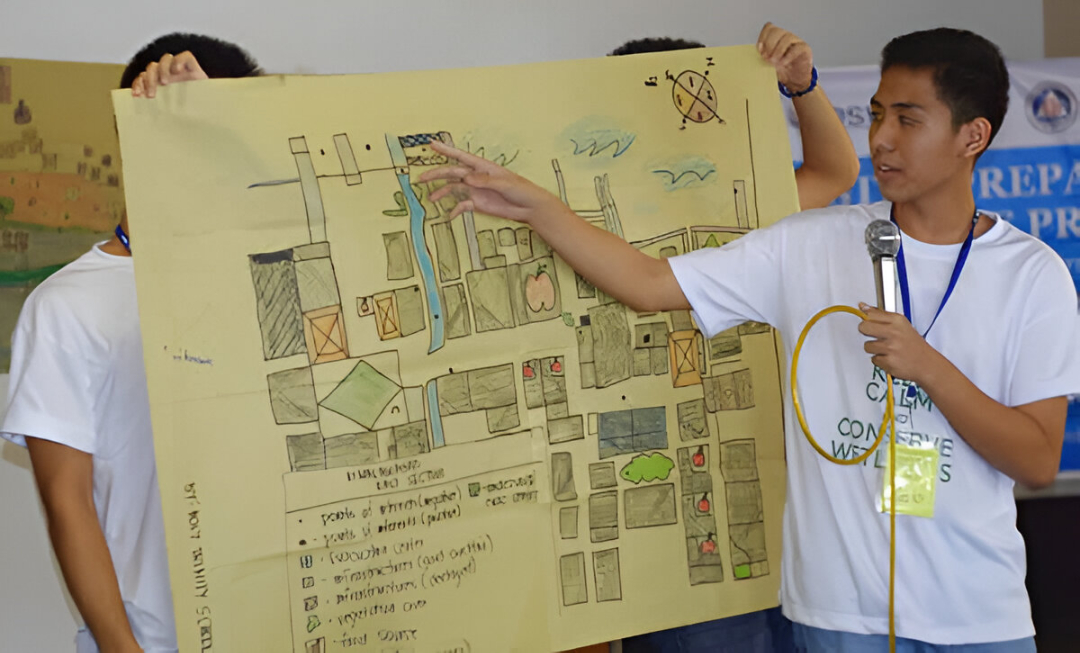
Inside the Youth Ecological Camp Experience
The YEC is a dynamic, 3-day live-in program designed for 8th and 9th-grade students in wetland-rich regions. Its experiential learning model includes field visits, interactive workshops, action planning, and games that make environmental education engaging and transformative. Campers are also trained in public speaking and resource mobilization – skills they later apply in school- and community-based projects ranging from tree planting and waste recovery to lake monitoring and eco-tours.
The curriculum culminates in the development of concrete conservation actions, empowering youth not only to learn but also to lead. A publicly available training manual ensures the replicability and sustainability of this initiative: SCPW YEC Training Manual.
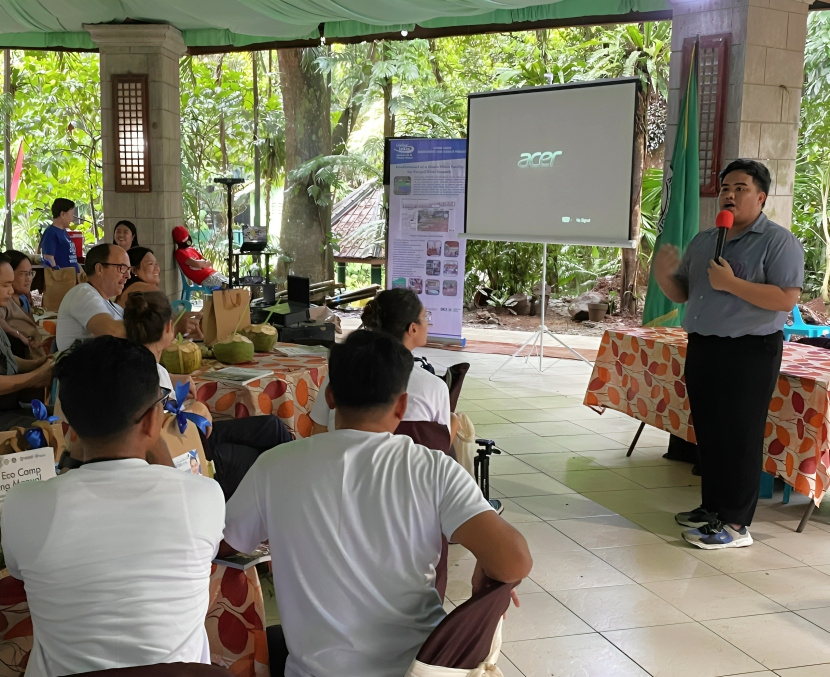
Impact at a Glance:
- 25 camps conducted around Laguna de Bay, involving over 700 students and 33 teachers from 118 high schools.
- Over 110 youth-led environmental projects implemented.
- A network of 1,000+ members in the CLEAR Youth Network (CYN), with 12 annual congresses held.
8 camps and 4 Training of Trainers sessions implemented beyond Laguna de Bay.
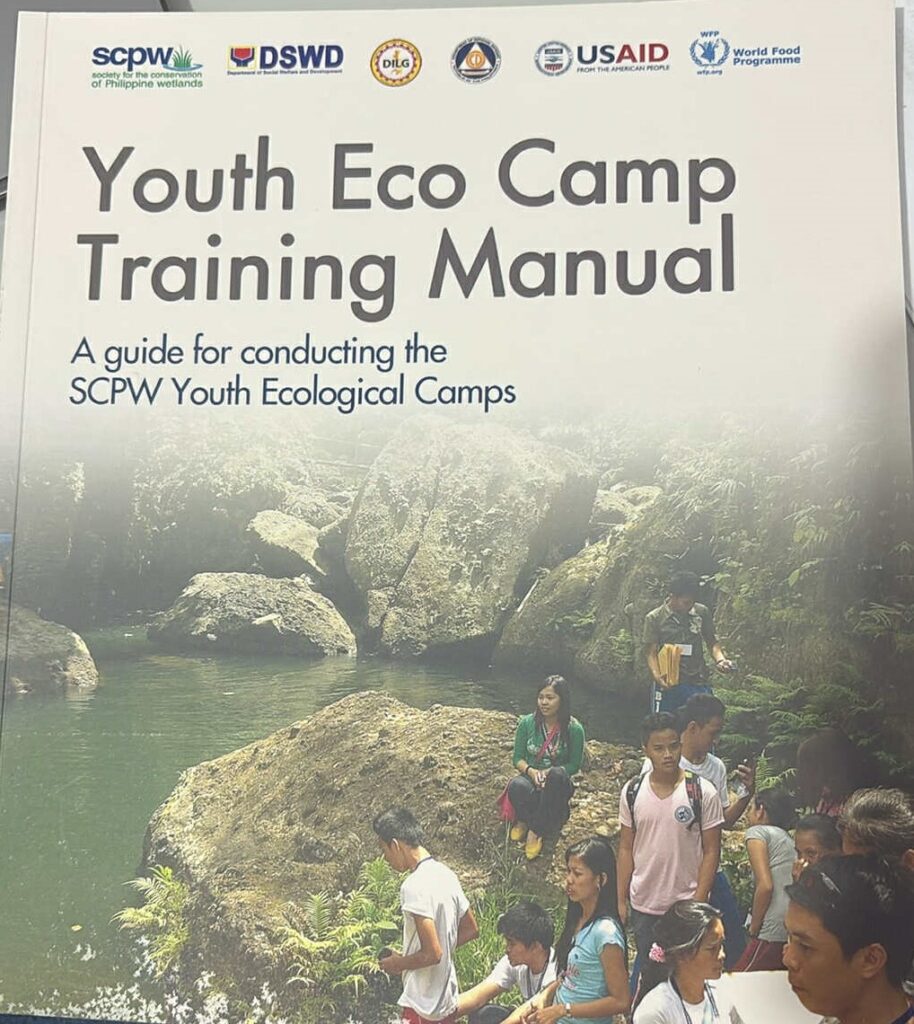
From Camps to Changemakers:
Over two decades, the SCPW Youth Ecological Camp has grown into a proven model for nurturing future leaders in wetland conservation. Its resilience – demonstrated by virtual adaptations during the pandemic – and international recognition, including endorsement by the UN World Food Programme as a platform for disaster risk education, are testaments to its success.
Through the support of the Living Lakes Biodiversity and Climate Project, the YEC continues to expand its reach, build capacities, and shape environmentally conscious youth who will lead communities toward a sustainable and resilient future. As Mark’s story shows, the seeds planted in these camps grow far beyond the wetlands—they shape lives, careers, and futures.

